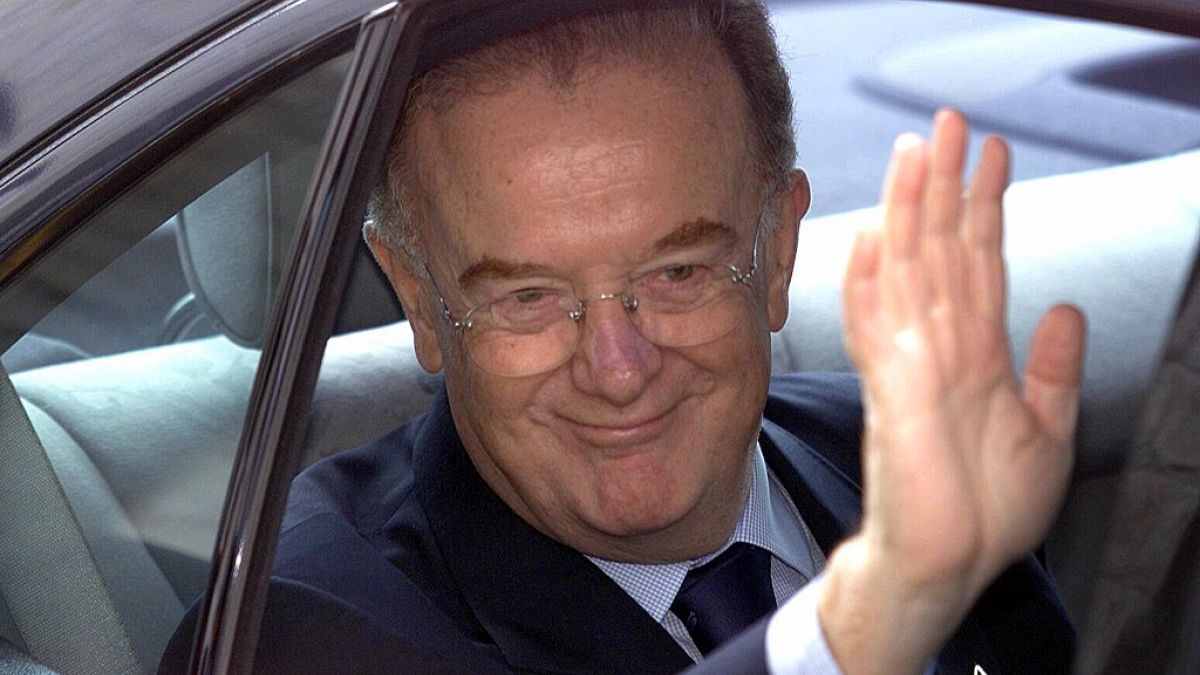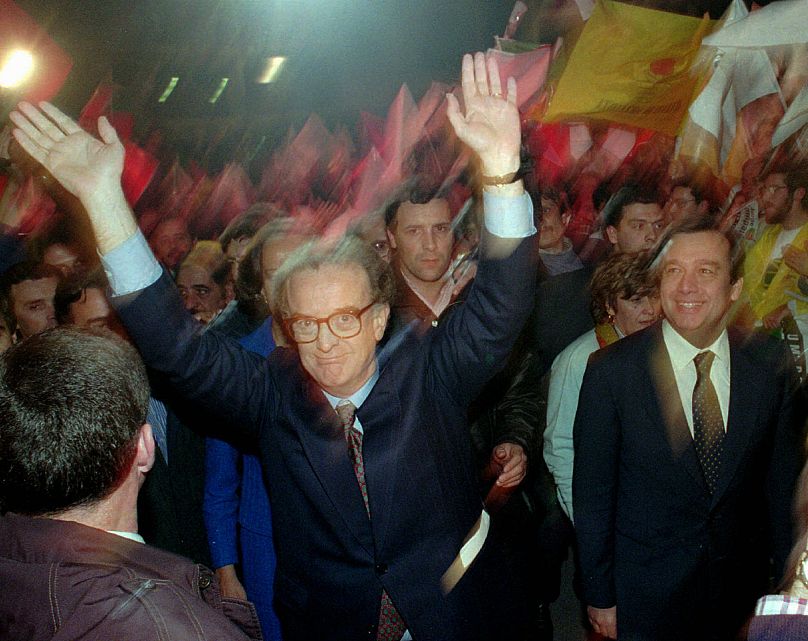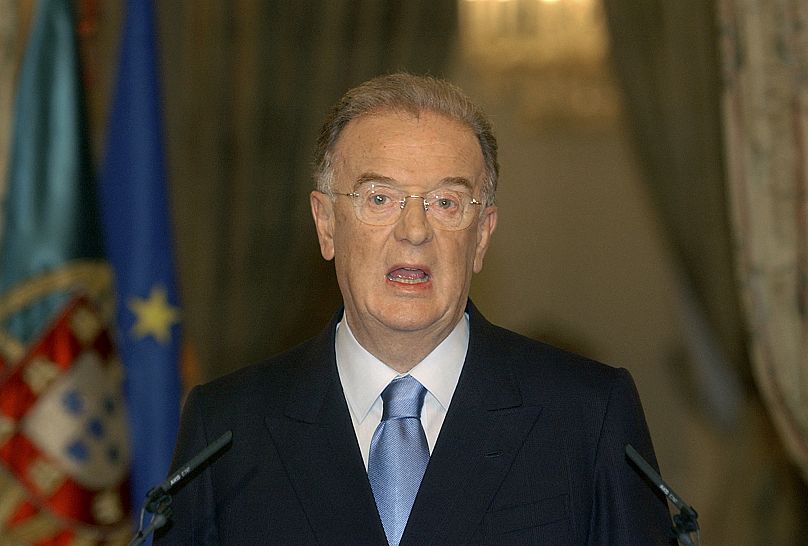Current president Marcelo Rebelo de Sousa said in a televised address that Sampaio fought for "freedom and equality".
The former president of Portugal Jorge Sampaio has died at the age of 81, his family has confirmed.
Sampaio had been in delicate health for several years and had been in hospital in Lisbon for the past two weeks.
He had served as Portugal's president for two terms between 1996 and 2006 and had previously been mayor of the Portuguese capital.
The current Portuguese president, Marcelo Rebelo de Sousa, announced Sampaio’s death on Friday, without giving a cause of death.
"Sampaio was born and educated himself to become a fighter and his fight had a goal: freedom and equality," Rebelo de Sousa said in a televised statement.
Portugal's Prime Minister António Costa also praised Sampaio as an upstanding politician who defended democracy.
"We bow down before the memory of a man who always fought for freedom, for democracy, and whose moral uprightness brought prestige to our country’s political life," said Costa.
Born in Lisbon in 1939 to a middle-class family, Jorge Sampaio first entered politics during his law studies.
He was one of the leaders of the 1962 university strikes against the dictatorship of António Salazar. President Rebelo de Sousa described Sampaio on Friday as "a red-haired hurricane" in the 1960s.
Once he became a lawyer, Sampaio also defended several political prisoners.
Four years after the end of Portugal's dictatorship, Sampaio joined the Socialist Party founded by Mario Soares, his predecessor as president.
A long-time member of parliament, he became the party's secretary-general in 1989 and, in the same year, won the Lisbon mayor's office.
Despite defeat in the 1991 elections, Sampaio then turned his attention to the role of President and won the 1996 election over rival Anibal Cavaco Silva.
In Portugal, he was perhaps best remembered for controversially dissolving parliament in 2004 after months of government in-fighting.
After completing a second term in office in 2006, Sampaio then held several posts at the United Nations, including as a special envoy for the UN's "Stop TB" initiative.
He then served as High Representative for the Alliance of Civilisations, which aims to promote initiatives to overcome misunderstandings between cultures and religions. Most recently, Sampaio also led an international platform in support of Syrian students.
Throughout his career as one of the most prominent political figures of his generation, Sampaio was praised for his low-key, down-to-earth manner.
Sampaio was fluent in English, studied at Johns Hopkins University, and once said he had always wanted to become an orchestra conductor.
Portugal is to observe three days of national mourning, when Portuguese flags on public buildings fly at half-staff, from Saturday, President Rebelo de Sousa announced.
No details about a funeral have yet been announced. Sampaio is survived by his wife, a daughter, and a son.


